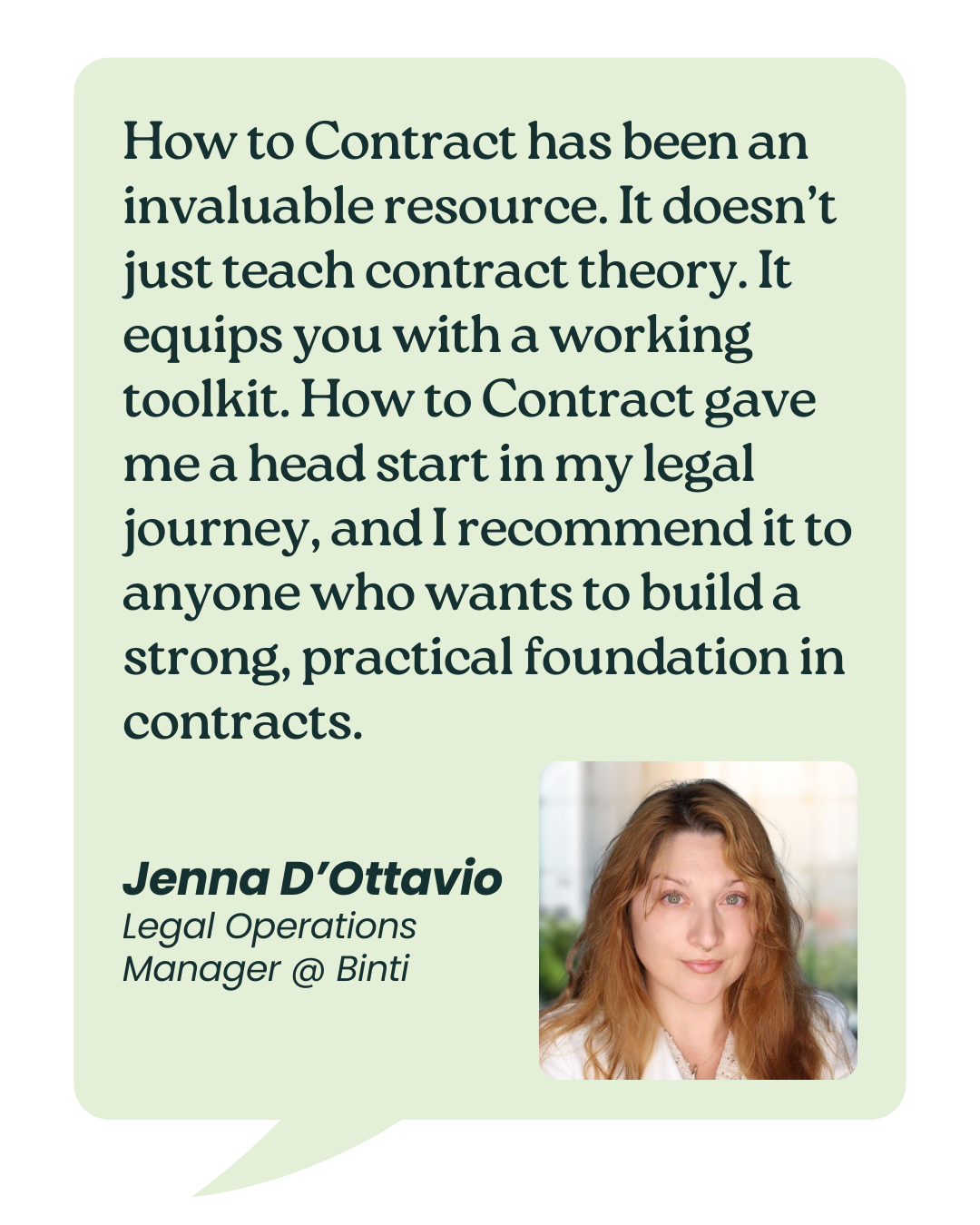
What Boilerplate Should You Include in a Short Contract?
We often find ourselves needing to prepare short contracts. It may be a letter agreement documenting some point or a simple services agreement for a limited project.
The traditional answer to what boilerplate to include is “all of them.” And most contracts follow this path. It makes sense, as these provisions provide the parties with clear approaches to key legal issues.
But what about the one-page low-risk contracts? Do you really need multiple pages of boilerplate?
My view is no. There is no one right answer for all contracts, of course, and some companies have stricter policies even on these. We have to evaluate the risks we face because we don't have them in this deal.
Here is my methodology:
Critical Provisions: I never sacrifice limit of liability, governing law, no waiver, and entire agreement provisions. They are on my must-have list in every deal.
Indemnity: I include in any deal of significance, but may remove in low-risk deals with individuals and small companies. We can always sue them after the fact for our damages.
Third-Party Beneficiary, No Oral Modification, Severability, Further Assurances, and Independent Contractors: If the contract is very short, I may lose these if there isn’t anything in the deal suggesting they are needed. The facts and law may make the provision moot anyway.
- Assignment, Choice of Venue, Notice, Counterparts, and Force Majeure: These concepts are already covered by common law, so we can just rely on the default rules.
How to Contract's membership is designed to help you build real-world expertise with commercial contracts. Get access to our comprehensive system of live and on-demand courses, weekly lessons, detailed playbooks, and more. Join today!







